INSTITUTE FOR URBAN MINISTRY FORUM
The church ‘must be a space for the marginalised’, activists and faith leaders told
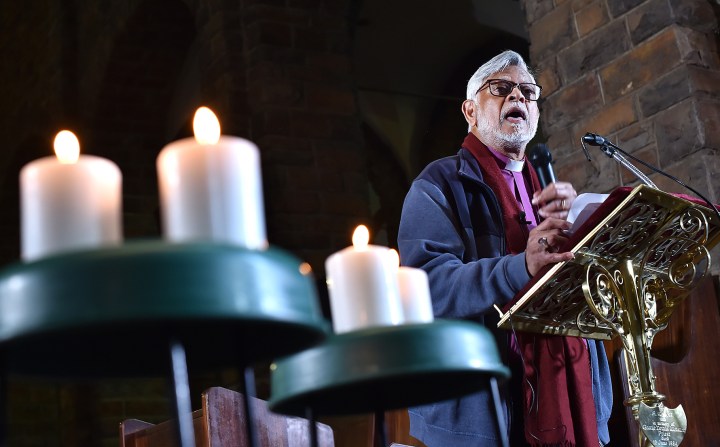
‘The church has to redefine itself and take its rightful place at the forefront of social justice work,’ activists and faith leaders were told on Thursday at the 14th Biennial Consultation held by the Institute for Urban Ministry in Pretoria.
The Rev De la Harpe le Roux, managing director of Towers of Hope in Bloemfontein, told the 14th Biennial Consultation held by the Institute for Urban Ministry in Pretoria that he had to reimagine his church when he saw the needs of marginalised people in the city.
Towers of Hope has congregants who are homeless people, sex workers, alcoholics and others faced with tough living experiences.
“The church must be a space for the marginalised. I realised doing social justice work and church is intertwined, so we have a soup kitchen and other community programmes to alleviate injustices,” said Le Roux.
He said the church has to be about uniting people from all walks of life.
Pastor Paballo Thekiso, leader of the Following Jesus Church in Northriding, Johannesburg, said social justice work doesn’t always look pretty.
“We had a community outreach project in a nearby shack settlement. After we engaged the community on what they needed assistance with, they asked us to clean a passage that was unsanitary and a crime spot. When we got there, we got a call that there was a dead man exactly where we were going to clean. I let the congregants know and I expected them to get in their cars and go home, but they said we should pray for the dead man.
“I saw right then that the gap in the class had been bridged — we had achieved being truly compassionate in a way that wasn’t performative but a daily commitment.”
Church leaders told how they had begun libraries, food kitchens, clean-up operations and youth development projects, all aimed at marginalised communities.
Delegates came from all over Africa, including the Democratic Republic of the Congo, Nigeria and Ethiopia.
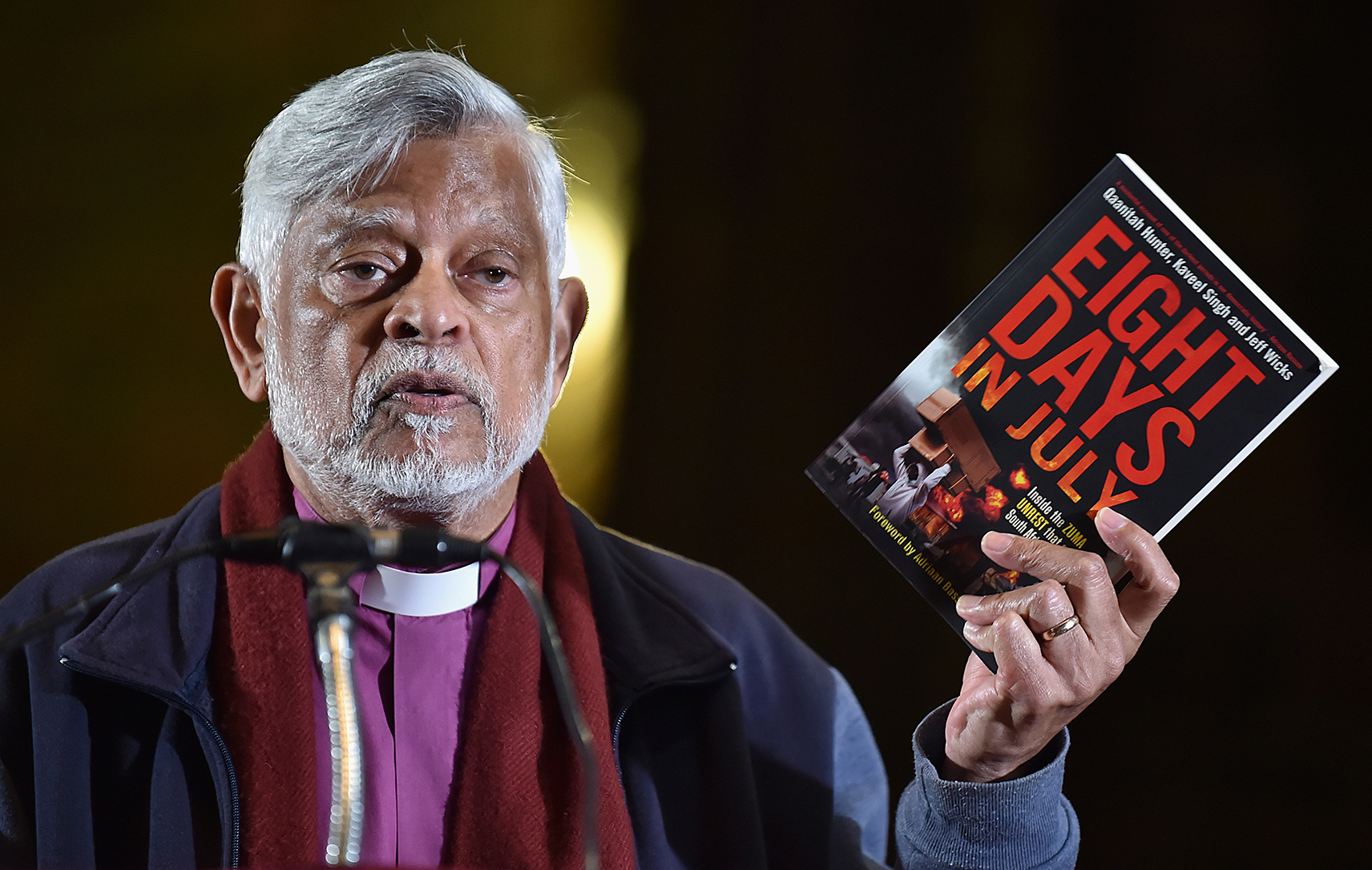
Bishop Emeritus Rubin Phillip of the Anglican Dioscese of Natal holds a book with the reference to the July 2021 unrest that took place in KZN while delivering his keynote at the 14th Biennial Consultation held by the Institute for Urban Ministry in Pretoria.
(Photo: Refilwe Modise / Pabsmedia)
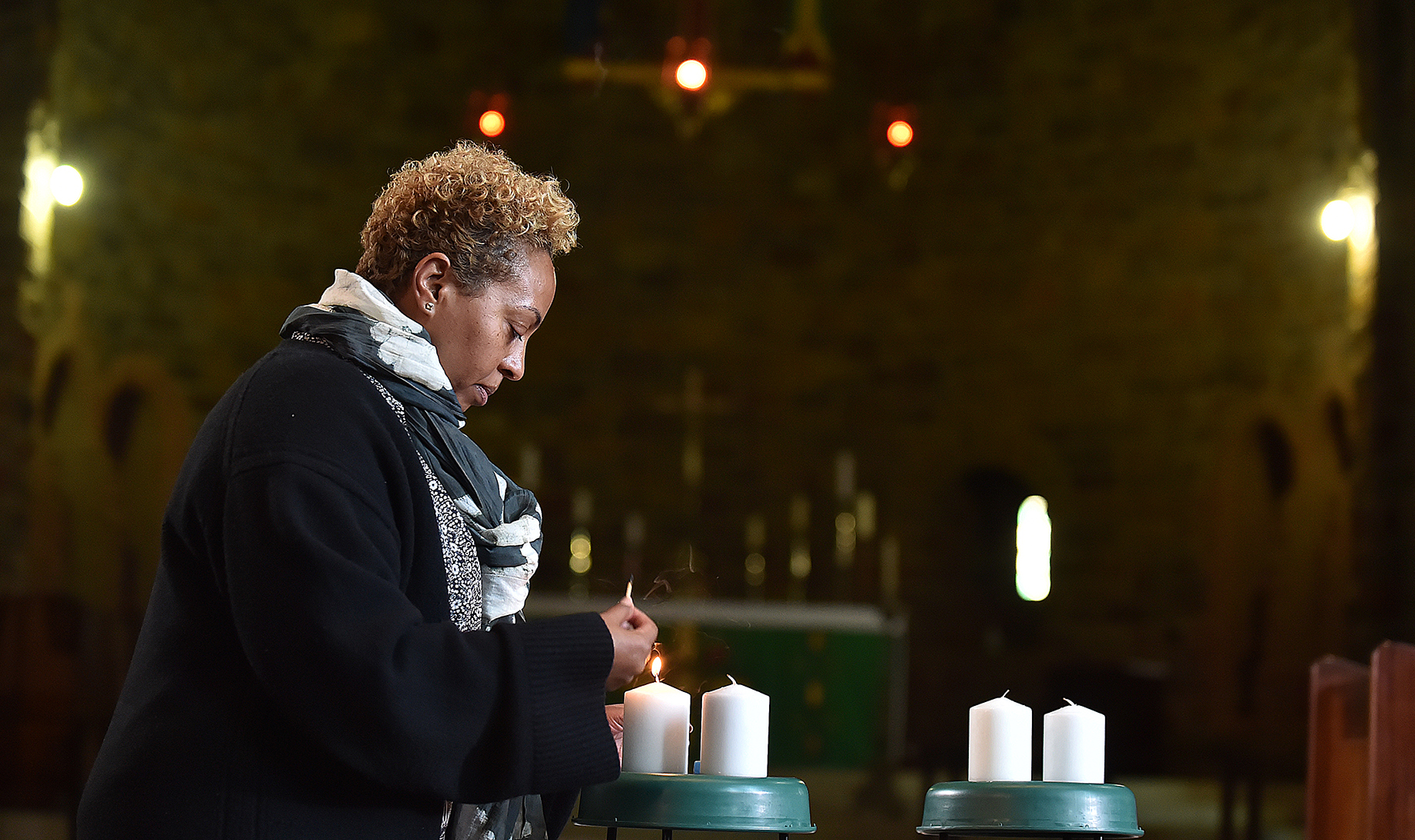
Memmenasha Haile-Giorgis, principal of the Birhan Social Development Training and Consultation Centre in Ethiopia, lights a candle in remembrance of colleagues and activists who have passed away. (Photo: Refilwe Modise / Pabsmedia)

Participants dance and sing songs at the 14th Biennial Consultation. (Photo: Refilwe Modise / Pabsmedia)
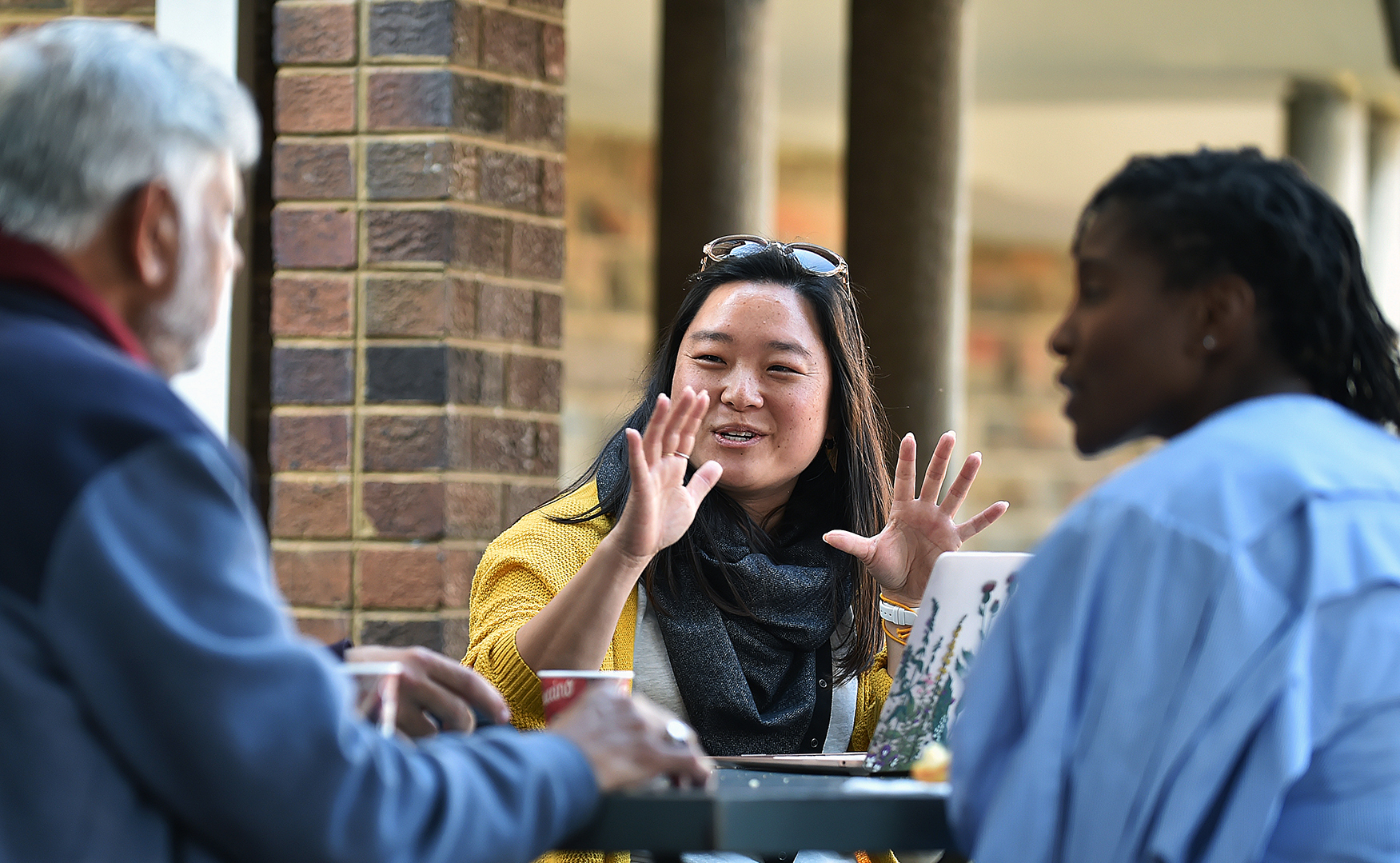
Participants engage in a conversation during a break at the 14th Biennial Consultation. (Photo: Refilwe Modise / Pabsmedia)
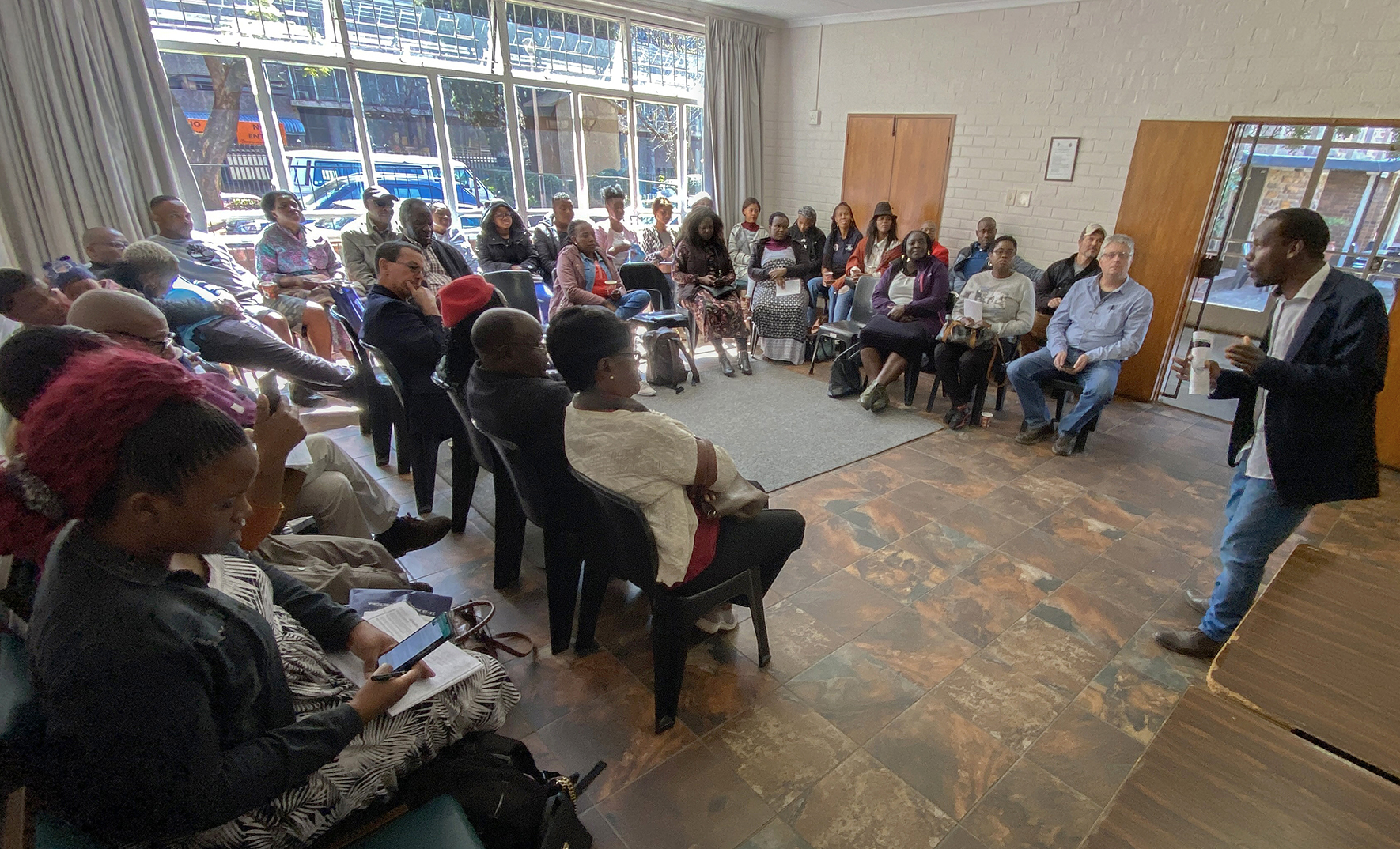
Tona Moroke of the Hammanskraal Full Gospel Church shares ideas on how his church community has been doing things differently during the pandemic. (Photo: Refilwe Modise / Pabsmedia)
Reclaiming public spaces
Urbanisation has become rampant in Africa because economic opportunities are scarce in rural areas. This has resulted in a crisis of homelessness and impoverished people not having access to land for homes, recreation, or any other activity crucial to a well-balanced life.
Nkosivumile Gola of the Anabaptist Network in South Africa said shack settlers should be embraced and engaged with rather than shunned.
He spoke in a panel that aimed to find solutions for the lack of access for impoverished people to safe and developmental public spaces in cities. Activists who have successfully claimed and repurposed “dead spaces” in cities for gardening, parks, youth development, and sporting activities shared solutions and challenges.
The Biennial Consultation began on Wednesday and will end on Saturday. DM


















Comments - Please login in order to comment.